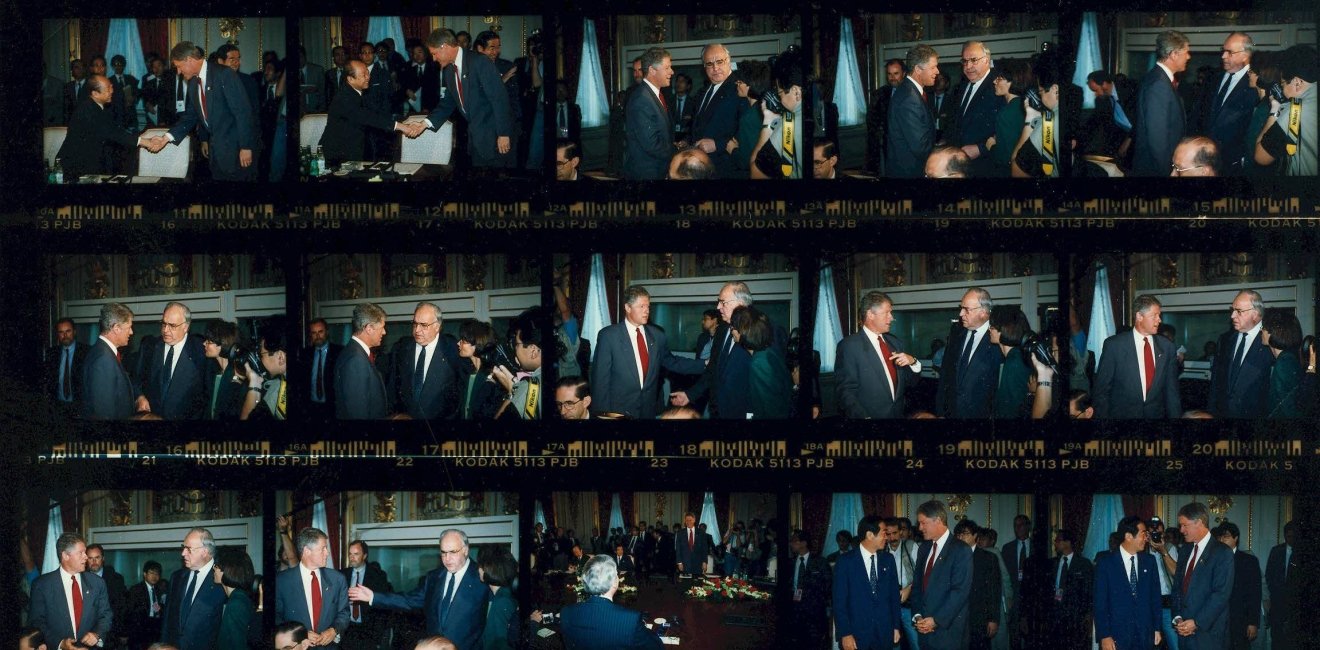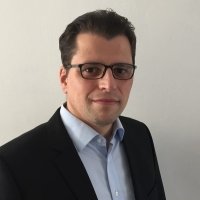The Helmut Kohl Transcripts: Germany Engages Asia
Helmut Kohl’s meetings with heads of state from Asia in the 1990s reflect his desire to elevate Germany's economic and political stature on the world's stage.

A blog of the History and Public Policy Program
Helmut Kohl’s meetings with heads of state from Asia in the 1990s reflect his desire to elevate Germany's economic and political stature on the world's stage.

This essay is one in a series about the Helmut Kohl Transcripts, a new Wilson Center Digital Archive resource featuring hundreds of Helmut Kohl’s foreign policy meetings with world lead
EXPLORE THE HELMUT KOHL TRANSCRIPTS
After the end of the Cold War, Chancellor Helmut Kohl hoped to increase Germany’s global presence by turning the country into a major trading power. Kohl also sought to use Germany’s economic and financial strength to defend the country’s political interests abroad. Kohl’s meetings with heads of state from Asia reflect these elements of German foreign policy in the 1990s.
One key partner in defending these interests was Japan. Kohl supported Japan’s requests for more politico-military consultations at the World Economic Summits. Prior to the 1992 World Economic Summit in Munich, for example, Prime Minister Miyazawa explained that because Japan was not a member of NATO, the European Commission, or the CSCE, “the G-7 summits were the pivotal forum for political discussions with other industrialized countries.” Kohl nodded his head in agreement, saying “he knew the Japanese issues very well.”
At this time, the Japanese side was also interested in the return of the Kuril Islands, which the Soviet Union had seized after the end of World War II in August 1945. After the dissolution of the Soviet Union, Japanese Prime Minister Miyazawa saw the return of the Kuril Islands as a precondition for Japan’s economic assistance for the countries of the new Commonwealth of Independent States. Miyazawa told Kohl that “it would be considerably easier for him to participate in assistance for the CIS states if he obtained the consent of the Japanese population in this way.” Kohl promised to support Japan’s position and emphasized that he had already discussed the issue with Gorbachev and Yeltsin.
In February 1993, Helmut Kohl embarked on a 12-day, five-nation journey to Asia – it was his first to the fast-growing region since unification in 1990. Kohl’s interlocutors in India, Singapore, Indonesia, South Korea, and Japan were especially interested in the state of the European Union’s economic and financial integration after the ratification of the Maastricht Treaty and its implications for Europe’s global trade. When Kohl visited Tokyo, his message for Miyazawa was that European integration was on track and that Sweden, Finland and Austria would join the European Union in 1995.
One of Kohl’s key points pertained to European trade with Asia. “[Kohl] wanted to make it very clear that there would be no fortress Europe,” his aides jotted down during a meeting with Miyazawa. “We need free trade,” he said. Because “Asia was the continent of the 21st century," Kohl sought to elevate trade relations between Europe and Asia.
Miyazawa echoed Kohl’s remarks in this February 1993 meeting. Free trade was essential to foster globalization and Asia’s integration into the world economy, and it should not become an economic fortress either. He said he “was convinced that by 2015, the GDP of the six ASEAN states plus Japan and Chinas would be larger than the GDPs of the EC or the free trade zone between the USA, Canada, and Mexico, respectively.”
Moreover, Miyazawa suggested the establishment of a joint cooperation council for high tech and environmental technology, two key fields for a potential German-Japanese partnership. Kohl fully endorsed the idea, as it dovetailed with his overall aim to broaden the scope of the bilateral relationship.
Kohl and Miyazawa also discussed Indonesia’s changing role in foreign affairs after the end of the Cold War. After the dissolution of the bipolar confrontation, it no longer made sense for Indonesia’s leader Suharto to be a leader of the neutral and non-aligned movement, just as it no longer paid dividends for Indonesia to try to confront the Western industrialized world. Instead, Indonesia was searching for a new role and some sort of rapprochement with the industrialized countries through the World Economic Summit. Indeed, Indonesia sought to become a key link in a potential partnership between the North and the Global South.
Indonesia’s aspiration was to be a role model for development and economic change, Suharto pointed out in a conversation with Kohl. As chairman of the neutral and non-aligned movement, “it was Indonesia’s duty to explain the movement’s position toward the G-7,” Suharto said. “It was clear that they could not become a member. At the same time, they wanted to avoid confrontation.”
Moreover, Kohl and Suharto agreed on the sale of former East German naval ships to Indonesia – in spite of substantial domestic opposition in Germany. Human rights activists and opponents of arms exports criticized the supply of 39 old frigates for Indonesia as they could be used against domestic opposition or in Indonesia’s long-standing conflict with East Timor. Kohl to Suharto that “it was essential for the Indonesian side to emphasize that the ships were used to fight pirates and drug smugglers.”
Military issues also played an important role when Kohl visited India. There, he discussed restrictions on the export of German dual-use goods with India’s Prime Minister Rao. The latter requested that Germany lift restrictions on the export of the latest-state-of-the-art technology, and argued his government was emphasizing infrastructure, especially in the fields of energy, traffic, and telecommunications. In turn, Kohl drew a red line and said that “he did not want Germany to become the number one armaments exporter in the world. This would have devastating effects.”
Military affairs were also a key part of Kohl’s talks with South Korean President Kim Young-Sam, who was concerned about North Korea’s nuclear weapons program and the expansion of China’s military power. Kim said that “he was not certain if North Korea already had nuclear weapons, but there was sufficient evidence that the country was in the process of manufacturing nuclear weapons and could produce 5 atomic bombs by 1995.”Kohl’s suggestion was to increase international pressure on North Korea and to include China in the search for a solution.
Moreover, Kohl and Kim had an in-depth discussion on Germany’s former division and the lessons that might be drawn for the question of a divided Korea. Kohl pointed to the relevance of Western TV and human contacts, two means of scaling the Berlin Wall. After overcoming East German restrictions on broadcasting and people-to-people exchanges, West German saw a breakthrough in the 1980s. “All of this had led to the collapse of the GDR’s propaganda.”


A leader in making key foreign policy records accessible and fostering informed scholarship, analysis, and discussion on international affairs, past and present. Read more



